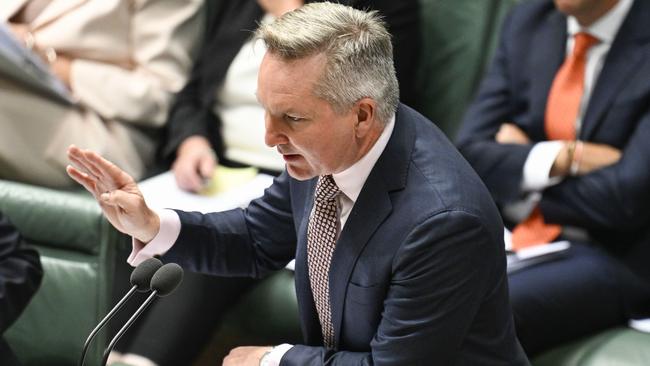
We’re losing our comparative advantage in cheap energy, having enjoyed some of the world’s lowest gas and electricity prices thanks to our abundance of coal and gas.
We’re now paying some of the world’s highest costs, despite being the world’s largest coal exporter and second-largest gas exporter. It makes no sense.
Energy Minister Chris Bowen is the master of obfuscation and spin, recently explaining: “I’m not about to walk away, and the government is not about to walk away, from our ambitions to make energy as cheap as possible for Australians, and that includes getting more renewable energy, which is the cheapest form of energy available.”
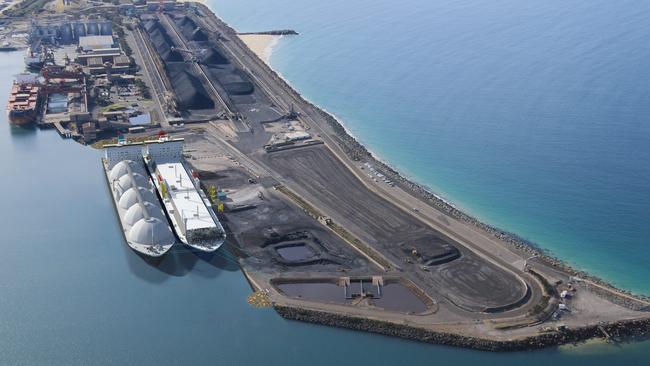
Fine sentiments. Who could disagree with the need for cheap energy?
But it’s not happening.
Labor’s priority is meeting its legislated 2030 targets – the 43 per cent reduction in emissions and a grid functioning on 82 per cent renewables.
The brief of the market operator, AEMO, is to devise the lowest-cost pathway to achieve these targets, as distinct from devising a system that provides the cheapest energy to consumers. That’s precisely why AEMO’s chief executive, at a recent Senate hearing, could not promise that Labor’s transition would lead to lower power prices.
We need to be clear about this important distinction.
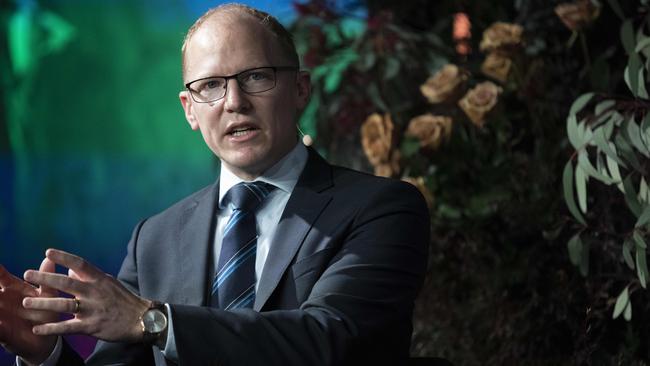
This should be at the heart of a serious rethink of our future energy trajectory.
This is made more urgent with Donald Trump’s election and the global impact of his energy, trade, tax and tariff policies.
Our power prices will continue going through the roof, while reliability falls and energy poverty grows.
The government will have to provide another taxpayer-funded relief package. However, relying on temporary Band-Aids, subsidies and off-budget opaque funding is no solution to the ever-increasing cost of power.
It’s no wonder Labor refuses to make public its whole-of-system costs for its transition.
Cost-of-living pressures and the failure to deliver the promised $275 cut in power bills by 2025 will loom large in this election.
The Ukraine war affected many countries, but it doesn’t explain why our current prices are among the highest in the world.
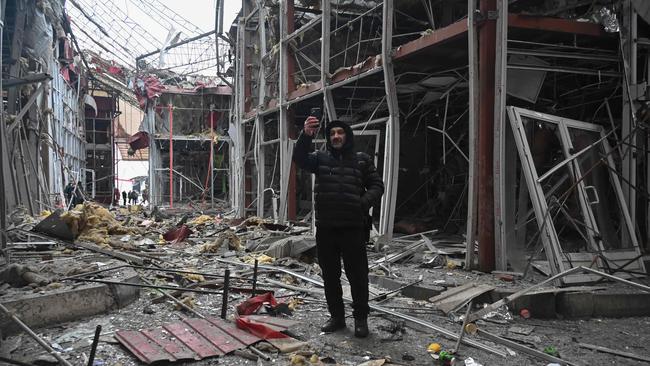
Labor’s blind faith in its modelling has failed it, but it hasn’t learnt the lessons.
The opportunities for a reset and a plan B should have been taken earlier.
Instead, Labor doubled down, as it presided over ever-increasing power prices.
At its December 2021 launch, Labor forecast a cut of $11 per megawatt hour in wholesale electricity prices, reducing them from $62 to $51 by 2025.
AEMO’s average cost for the last quarter of 2024 was $88MWh. This $26MWh increase was 72 per cent higher than Labor’s forecast.
The minister’s promises about cheaper energy are hollow, as are his constant attempts to offload responsibility.
Expect the Ukraine war and coal plants to carry the blame for not meeting Labor’s 2030 targets.
In early March we will know the draft increases in our power bills for the next financial year. Another taxpayer-funded relief package is inevitable.
Labor’s 2035 targets have been deferred till after the election, but don’t forget that the Climate Change Authority, now chaired by former NSW minister Matt Kean, previously circulated a suggested increase in the range of 65-75 per cent. This is sheer fantasy considering the present targets for 2030 won’t be met.
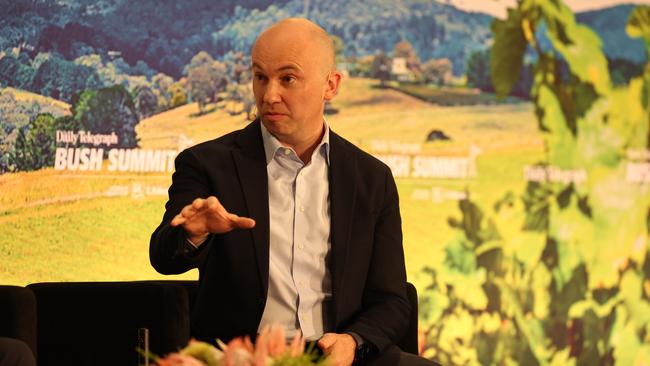
Trump’s election will certainly have global impacts.
How will our trade-exposed industries, such as steel, handle a more competitive environment with cheaper US energy costs and the new trade, tax and tariff regimes?
Domestically, industry will face rising energy costs, uncertainty about baseload supply and, for many that are trade-exposed, an increased carbon price impost under Labor’s safeguard mechanism.
What impact will this have on investment and jobs in the future?
Of immediate concern is the looming shortfall in domestic supply of gas and its impacts on our manufacturing base and the jobs it provides.
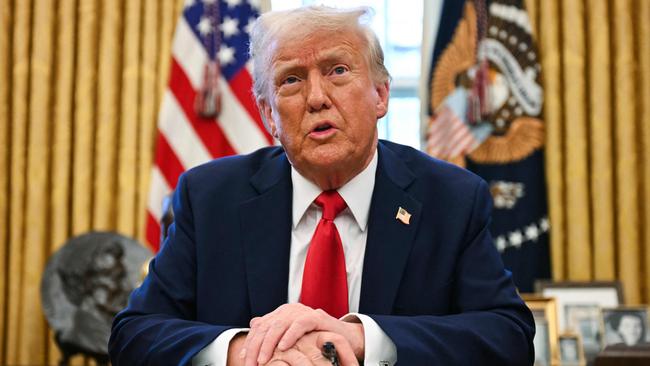
Trump’s withdrawal from the Paris Agreement means a changed global environment necessitating a reassessment of our energy future.
The need for a continuing supply of reliable baseload power has never been more pressing.
Without energy security we can’t sustain our present standards of living, protect our national security and ensure a viable manufacturing base.
Business as usual would have us continuing down the present path to economic calamity. Relying on intermittent, weather-dependent renewables would make industrial-scale supplies of electricity so expensive and insecure that we risk losing out on the new wave of energy-hungry investment. While Labor continues its pretence of a reliable renewables future, Trump envisages small modular nuclear reactors attached to plants and data centres. We’re stuck in the past, constrained by a 26-year ban on emissions-free nuclear energy. If we remain ill-prepared for the energy demands of the new world of AI and data centres, we’re short-changing our future prosperity and our national interest.
Jennie George is a former ACTU president and Labor MP for Throsby.


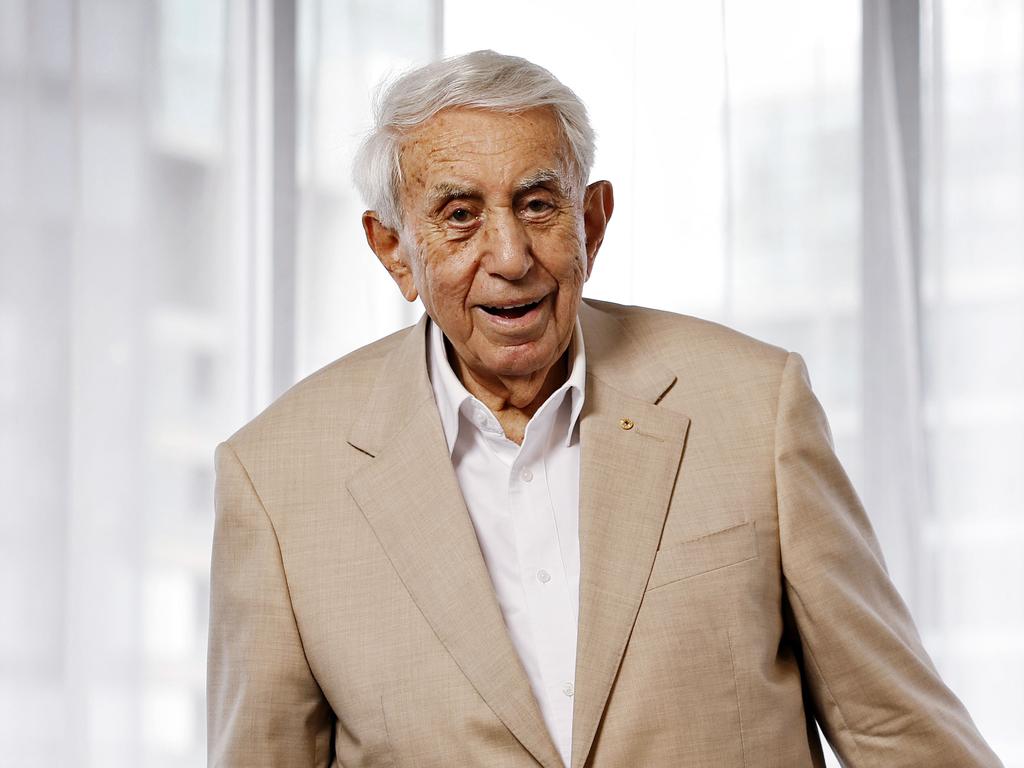
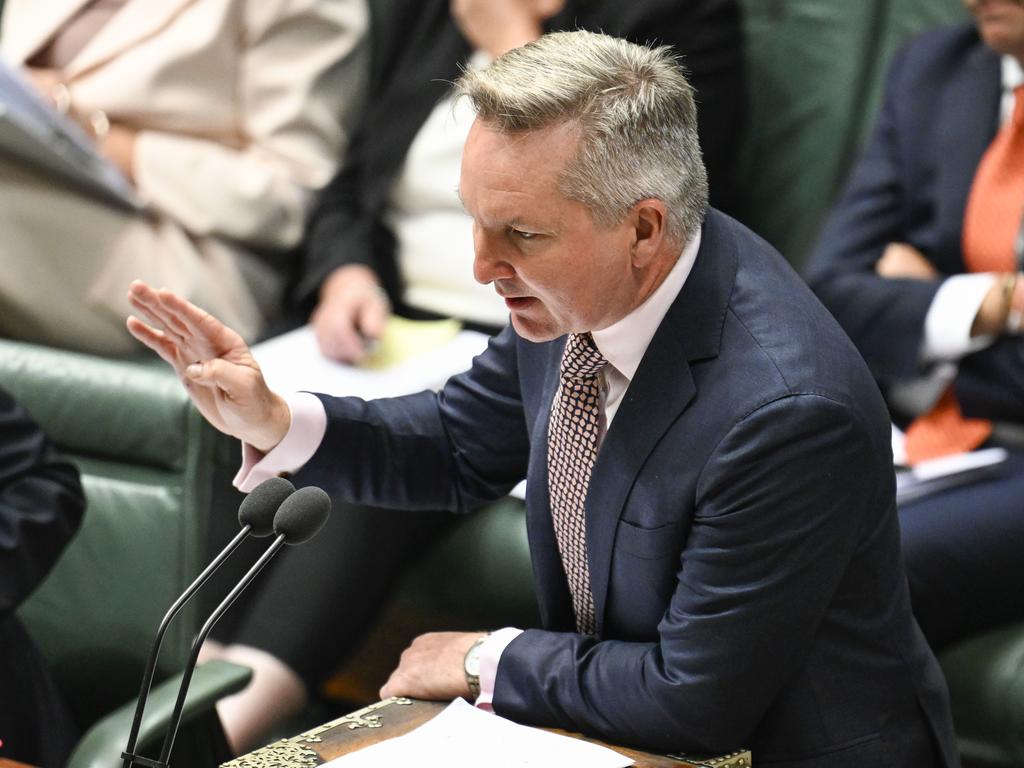


There’s no better example of the consequences and folly of Labor’s “Reliable Renewables Plan” than the construction of a gas import terminal at Port Kembla.